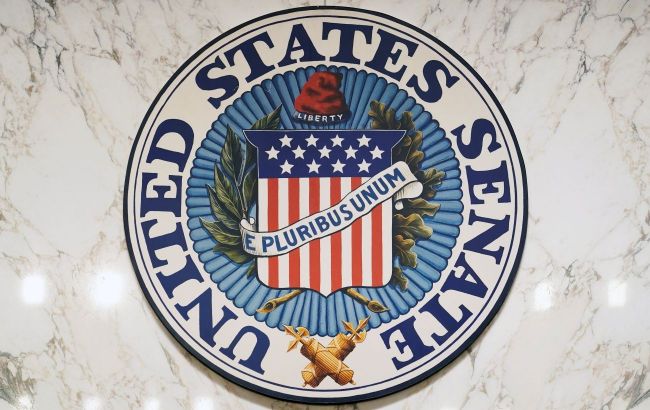U.S. Senate begins consideration of aid to Ukraine, but decision still far off
 The U.S. Senate has begun considering the issue of aid to Ukraine (Photo: Getty Images)
The U.S. Senate has begun considering the issue of aid to Ukraine (Photo: Getty Images)
The U.S. Senate supported, during procedural voting, the beginning of consideration of a bill to support Ukraine and Israel. President Volodymyr Zelenskyy has stated that this is "a bad day for Putin," but the final decision is still far away.
RBC-Ukraine reports on the ongoing proceedings in the Senate and when the final decision regarding Ukraine will be made.
During the preparation of the material, the broadcast of the U.S. Senate session, statements by President of Ukraine Volodymyr Zelenskyy, and Speaker of the U.S. House of Representatives Mike Johnson were used.
Senate vote
Today, the U.S. Senate held a procedural vote on the bill to aid Ukraine and Israel, which does not include the contentious issue of the American border. The bill was supported by 67 votes "For."
The U.S. Senate has taken up the issue of assistance to Ukraine, but a final decision is still far away.

Some Ukrainian media and news Telegram channels mistakenly assumed that this was the final decision of the senators, and the document successfully passed the Senate. But that is not the case.
The initial vote in the Senate was on whether to begin consideration of this bill at all. This type of vote failed yesterday for the bipartisan bill regarding strengthening the American border.
What's happening in the Senate now
Currently, debates are ongoing in the U.S. Senate regarding the bill to support Ukraine and Israel. Following the debates, amendments may be included in the bill if the senators decide. In particular, some Senate Republicans want to reintroduce the border issue into this bill. Others want to exclude financial support for Ukraine and leave only military support. However, whether these amendments will be included remains uncertain.
After the debates, the bill in its final form will be brought back for a vote. For it to be adopted, at least 60 votes "For" are needed, and since there are only 51 Democrats, the support of 9 more Republicans will be required. However, the results of the procedural vote give hope that the necessary number of votes will be found in the Senate.
The decision of the Senate has already been responded to by the President of Ukraine, who thanked the senators for moving the issue forward.
"I am grateful to US Senate for the decision to unlock the discussion on assistance to Ukraine and other strategic partners. A very important first step to continue support for Ukraine’s victory and increase our shared security. This is a bad day for Putin, and a good day for democracies," Zelenskнy wrote on X.
What's next
After the vote in the Senate, the document must be considered by the U.S. House of Representatives. Only after approval by the House of Representatives will the bill be sent to the President of the United States for signature.
However, there may be problems with approval in the House of Representatives, as it is controlled by Republicans, and the Speaker, Mike Johnson, is a Trumpist. It is the Republican-controlled House of Representatives that is dragging out the process. For example, the U.S. President's request for funding to support Ukraine and Israel has been under consideration in the U.S. Congress since October 2023.
However, Johnson's recent comment on the bill being considered by the Senate looks promising. At least he did not state that the House would not consider the document, as was the case with the border agreement.
"We'll see what the Senate does. We're allowing the process to play out and we'll handle it as it is sent over. I've made very clear that you have to address these issues on their merits," said the Speaker of the House of Representatives.
U.S. aid to Ukraine
In late October 2023, the US President appealed to the American Congress for an allocation of over $105 billion in aid to Ukraine, Israel, and Taiwan. As part of this request, Ukraine was to receive over $60 billion.
However, Biden's request faced stiff resistance from Republicans in Congress, particularly from so-called Trumpists in the U.S. House of Representatives. Johnson explicitly stated that he would not bring the request for consideration, as Republicans wanted the U.S. President to address the situation at the Mexico border.
To address this issue in the U.S., negotiations were initiated between the White House, Democrats, and Republicans to create a bipartisan agreement that would address both the border issue and unlock Biden's request.
Over the weekend, senators involved in crafting the agreement presented it to the floor. However, the agreement received a barrage of criticism in the House of Representatives. They stated that they would not consider it.
Following this, Senate Republican leader Mitch McConnell and other high-ranking officials stated that the Senate needed to separate the border issue and separately consider funding for Israel and Ukraine.

